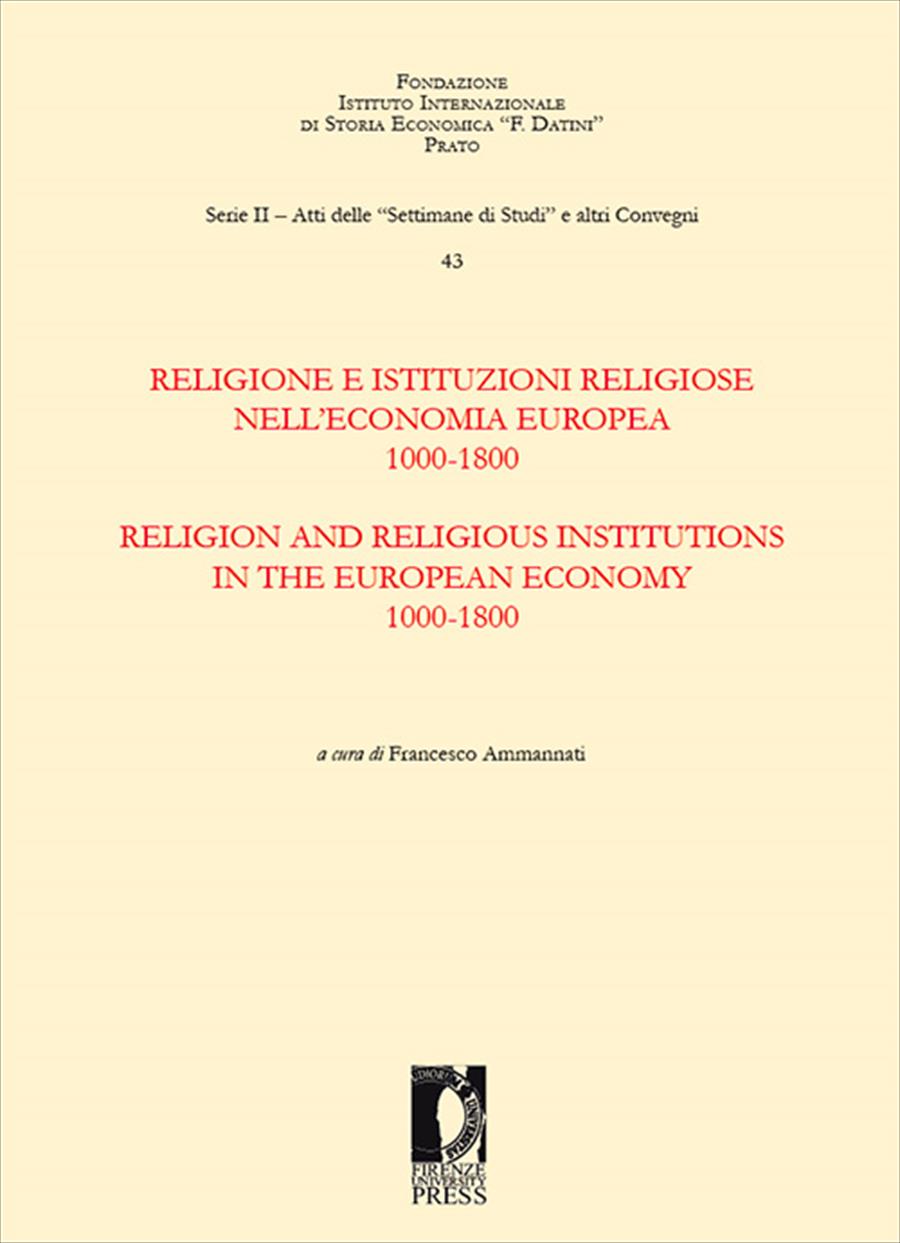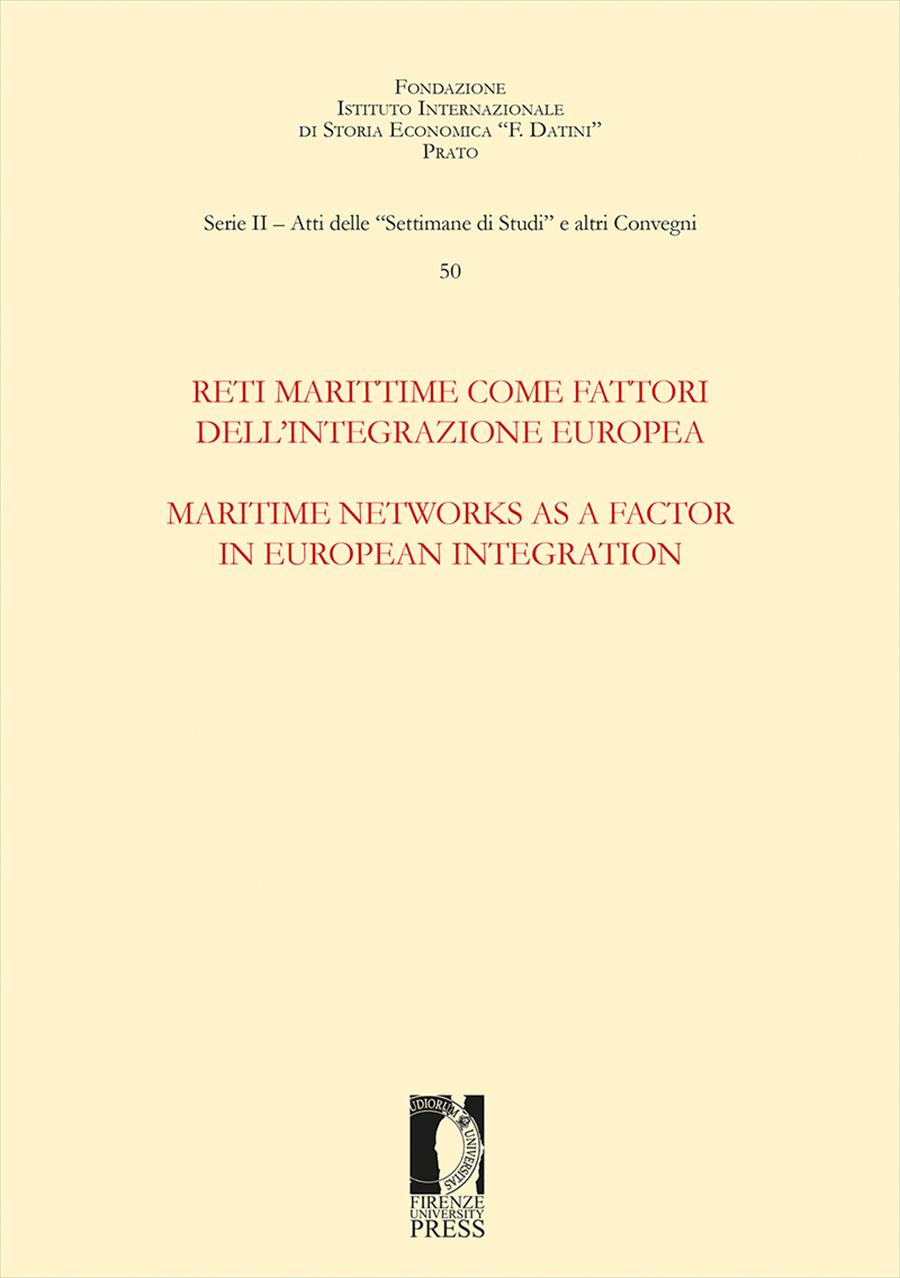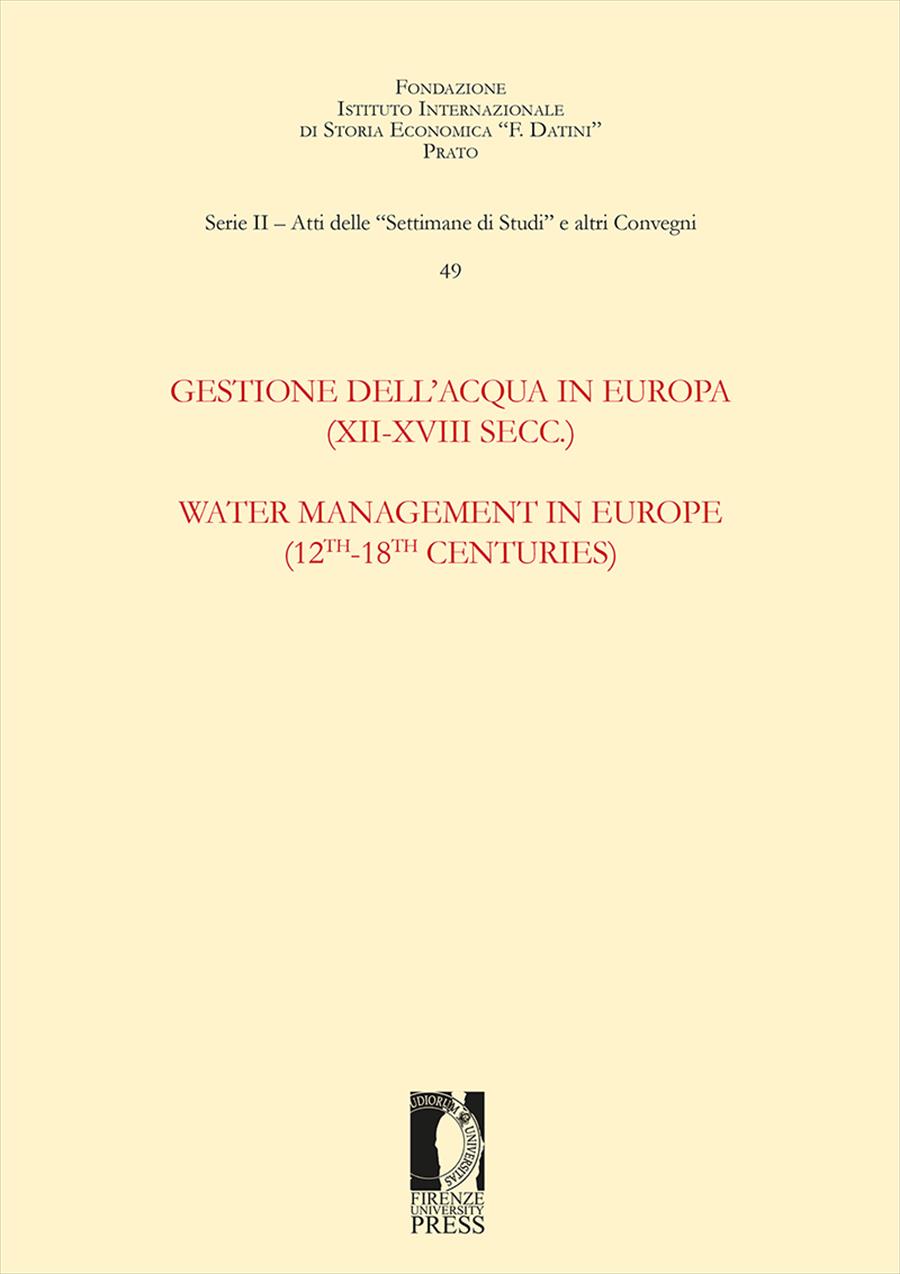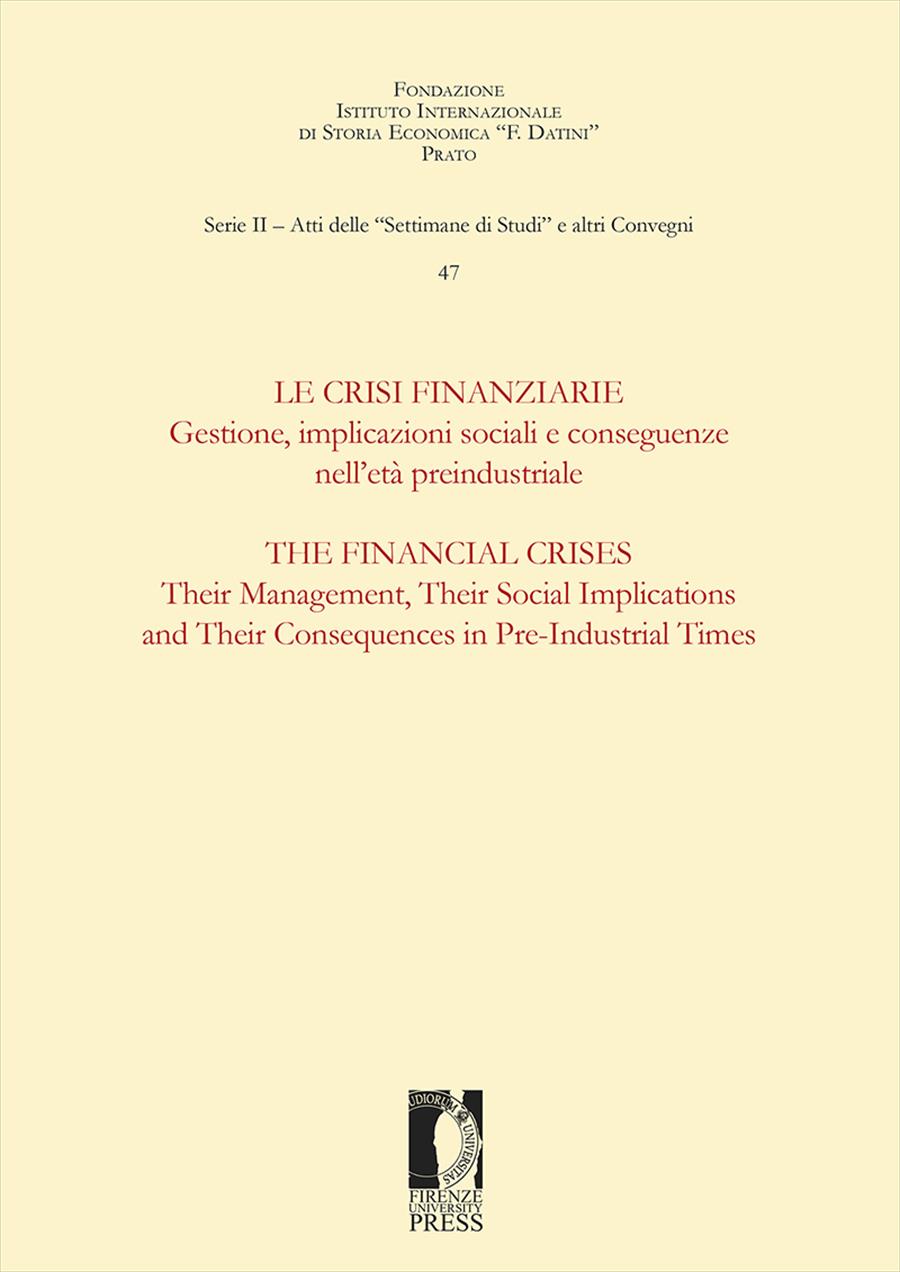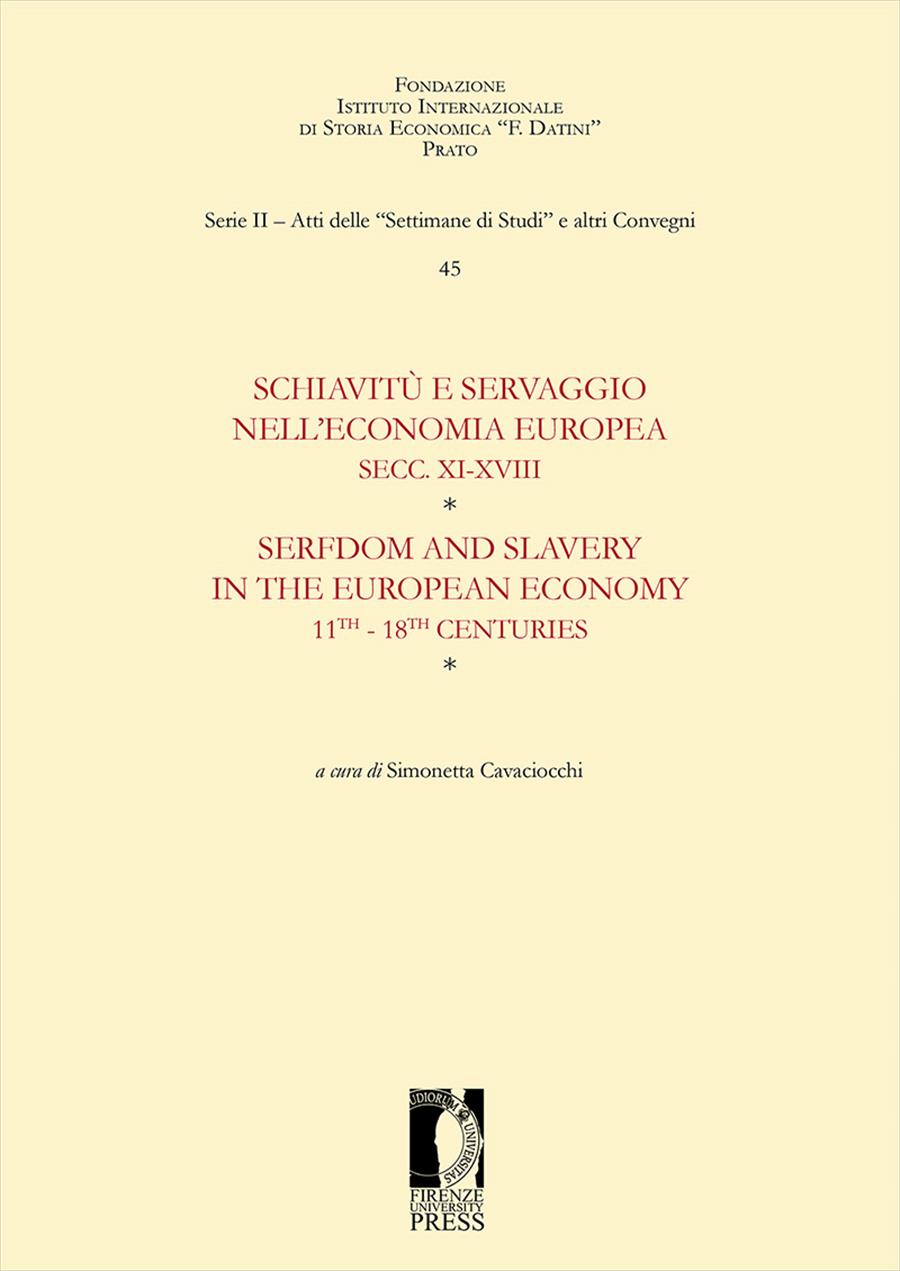Religione e istituzioni religiose nell'economia europea. 1000-1800 - Religion and Religious Institutions in the European Economy. 1000-1800
Atti della "Quarantatreesima Settimana di Studi" 8-12 maggio 2011
- Edited by:
- Francesco Ammannati,
Religion is undoubtedly the most important cultural phenomenon in world history. It was ubiquitous in medieval and early modern daily life. In all ages and cultures, it has been affected by the economy; on the other hand it has had a profound influence not only on theories, but also on practice, custom, regulation, consumption, tools and in general on the whole economic organization. Even the migratory flows, that produced significant effects and transformations on the European economic system, have been often linked to religion-related issues. The volume that collects the proceedings of the Datinian Study Week investigates through 44 scientific contributions this dynamic and complex relationship, which involved the three main European religions: Christianity, Judaism and Islam, but also the particular experiences within each confession. In fact, they had, in different contexts, different interpretations and divergent dogmatic and doctrinal expressions, which led to significant differences in the evolution of European and Mediterranean economic instruments and relations, starting from the beginning of the second millennium.
- DOI: 10.36253/978-88-6655-126-3
- Series: Atti delle «Settimane di Studi» e altri Convegni
- Scientific Board: Fondazione Istituto Internazionale di Storia Economica «F. Datini»
- Language: Italian, English, French, Spanish
- Subjects: Economics Economic History
Purchase
Bocconi University, Italy - ORCID: 0000-0002-4820-4390
- Publication Year: 2012
- Pages: 880
- eISBN: 978-88-6655-126-3
- Content License: CC BY-NC-ND 3.0 IT
- © 2012 Author(s)
- Publication Year: 2012
- Pages: 880
- ISBN: 978-88-6655-123-2
- Content License: CC BY-NC-ND 3.0 IT
- © 2012 Author(s)
- Publication Year: 2012
- eISBN: 978-88-9273-592-7
- Content License: CC BY-NC-ND 3.0 IT
- © 2012 Author(s)
Bibliographic Information
Book Title
Religione e istituzioni religiose nell'economia europea. 1000-1800 - Religion and Religious Institutions in the European Economy. 1000-1800
Book Subtitle
Atti della "Quarantatreesima Settimana di Studi" 8-12 maggio 2011
Editors
Francesco Ammannati
Peer Reviewed
Number of Pages
880
Publication Year
2012
Copyright Information
© 2012 Author(s)
Content License
Metadata License
Publisher Name
Firenze University Press
DOI
10.36253/978-88-6655-126-3
ISBN Print
978-88-6655-123-2
eISBN (pdf)
978-88-6655-126-3
eISBN (xml)
978-88-9273-592-7
Series Title
Atti delle «Settimane di Studi» e altri Convegni
Series ISSN
2704-6354
Series E-ISSN
2704-5668
